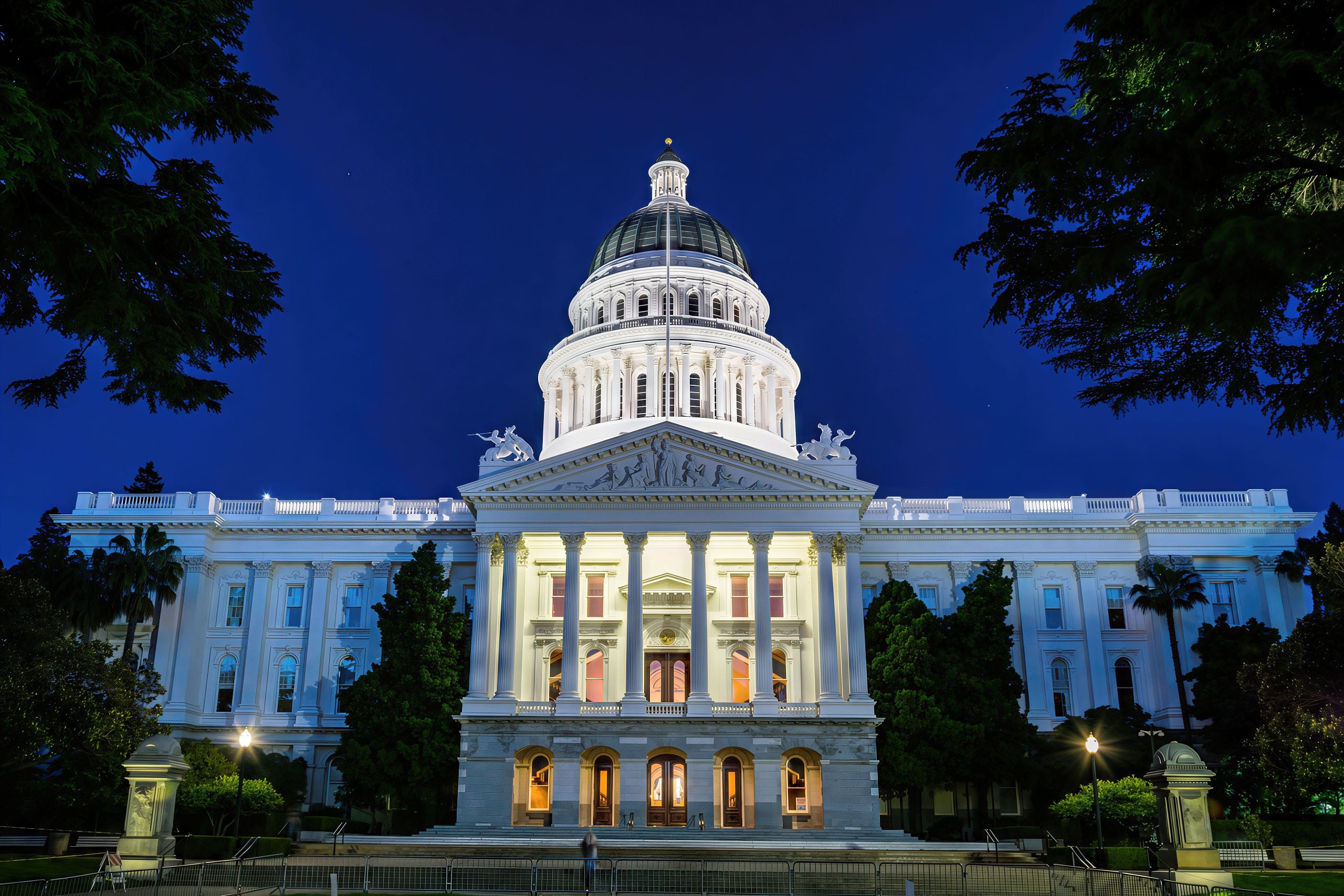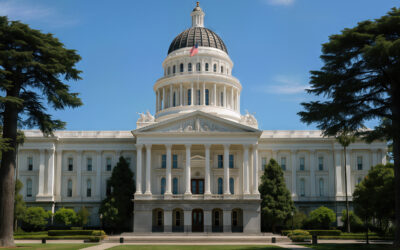On Saturday, Governor Newsom’s Department of Finance released the Budget Trailer Bills (TBL), offering additional details on the budget and policy changes outlined in the January State Budget proposal.
You can review the full 93-page K-12 Education Budget Trailer Bill here.
Below is a summary of key K-12 education proposals. Some language still requires clarification, which Capitol Advisors will continue to monitor and report on as details emerge.
What’s Next?
The trailer bills serve as a starting point for budget development and negotiations. Capitol Advisors will continue to provide feedback on these proposals to both the Administration and the Legislature during the budget committee process, which continues through late spring. The next major update will arrive with the May Revision, anticipated around May 15, which incorporates updated revenue estimates and stakeholder feedback into the Governor’s final proposal.
Student Support and Professional Development Block Grant
The TBL offers further clarity on the $1.8 billion discretionary block grant introduced in January. Funding would be distributed based on each LEA’s P2 TK–12 ADA for the 2024–25 fiscal year and will remain available through June 30, 2029. In addition to previously noted priorities such as literacy and math professional development, teacher recruitment, CTE pathways, and dual enrollment, the funding may also be used to cover rising costs and address other statewide needs.
Learning Recovery Emergency Block Grant (LREBG)
The Governor is proposing an additional $379 million for LREBG, supplementing the $5.6 billion provided in 2021–22. Future appropriations of $379 million are also planned for 2026–27 and 2027–28. These funds will be allocated based on the same methodology used for the original funding—multiplying an LEA’s unduplicated pupil percentage by its ADA.
As per Education Code section 32526, expenditures from these funds during the 2025–26 through 2027–28 school years will require a needs assessment and inclusion in the LEA’s LCAP.
Expanded Learning Opportunities Program (ELOP)
While the Governor previously proposed expanding Tier I eligibility to include LEAs with 55% or more unduplicated pupils, the TBL does not include additional structural changes. However, it does state that the Tier II funding rate may not exceed the statutory Tier I rate of $2,750. This is significant given that the current Tier II rate is $1,580 and has been steadily decreasing.
Literacy and Mathematics
Literacy and Math Coaches
The Governor is proposing $500 million in new grant funding for coaching programs: $250 million each for literacy and mathematics. Funds would be used to support hiring and training coaches to implement instructional strategies aligned with the respective frameworks.
For math, funding eligibility is limited to schools designated as rural with at least 75% unduplicated students or those serving at least 90% unduplicated students. For literacy, funds target elementary school sites with 94% or greater unduplicated pupils in grades K–3 that have not previously received literacy coach grants.
In addition, $15 million is proposed for COEs (or a consortium) to offer training and credentialing for reading, literacy, and bilingual specialists. LEAs may opt out of the literacy program by notifying CDE by September 30, 2025. For both literacy and math, reporting on fund usage will be required by June 30, 2029.
Reading and Literacy Supplementary Authorization Incentive Grant Program
The proposed budget increases the grant amount from $2,500 to $6,000 and reduces matching requirements for candidates obtaining a supplementary authorization in reading and literacy.
K–2 Reading Difficulties Risk Screener
A total of $40 million is proposed for LEAs that conduct screenings to identify K–2 students at risk of reading difficulties. Funding would be based on ADA for students enrolled in kindergarten through grade 2, excluding TK. LEAs must use funds to procure screening tools and train educators in their use.
Classified Salary Reporting (AB 938)
The Governor’s proposal modifies AB 938 to replace the Form J-90 update with a new data system for reporting salary, benefits, and FTE counts of specific classified and certificated staff. These updates delay the reporting deadline for LEAs to August 31, 2026, and require CDE to begin reporting progress by January 31, 2027.
Early Learning
Transitional Kindergarten (TK) Multilingual Learner Proposal
The Governor proposes $10 million for the development and statewide distribution of a screening instrument to support multilingual learners in TK. The screening tool, approved by the SBE, must be available to LEAs free of charge no later than March 1, 2026.
Small Change to Inclusive Early Education Expansion Program
A proposed adjustment would reduce the allocation for state-level system alignment from $50 million to $10 million, potentially freeing more funds for direct program participants. The administration’s intent for this change is still being clarified.
Master Plan for Career Ed
Credit for Prior Learning Initiative
This initiative, funded with $33 million upfront and $7 million ongoing, would expand recognition of learning acquired outside traditional academic settings. The trailer bill aims to simplify awarding credit for military experience, apprenticeships, and workplace training.
California Career Passport
With $50 million in proposed funding, the Career Passport would offer students a secure digital platform to display their validated skills and achievements to employers. The system would be designed in collaboration with education and workforce agencies statewide.
Career Technical Education (CTE) Grants
To address longstanding confusion with CTE grant timelines and requirements, the Governor proposes a feasibility study to streamline the process into a universal application system by 2026–27. Reports on current and historical CTE funding are due by October 15, 2025, and a full implementation plan by January 31, 2026.
Educator Shortage: Recruitment and Retention
Redefining Teacher Vacancy
The trailer bill redefines a “teacher vacancy” to include positions held by educators with credentials or permits that do not match their assigned subject or student population. This change would impact how vacancies are reported and addressed at the state level.
Loan Repayment for Teachers in Priority Schools
The Governor is proposing a $150 million investment in a new loan repayment program for educators in schools with at least 55% unduplicated pupils. Eligible teachers may receive up to $20,000, paid in $5,000 increments over four years, for service starting July 1, 2025.
National Board for Professional Teaching Standards (NBPTS) Certification Incentive Grant
An additional $100 million is proposed for NBPTS incentives, with $10 million earmarked for first-time certification fees. The grant program’s expenditure timeline would be extended through June 30, 2035.
LCAPs and Budgets: Penalties for Failure to Adopt
The trailer bill introduces financial penalties for LEAs that fail to adopt required plans or submit timely reports. If an LEA fails to adopt an LCAP or annual update by July 1, it may face a penalty equal to 20% of its second principal apportionment, increasing by 1% for each business day past the deadline (capped at 80%).
LEAs would also face withholding of funding or salary payments to leadership for failing to transmit LCAPs and budgetary reports to the SPI or county superintendent within 14 days of due dates.
Special Education
Individual Education Plan (IEP) Digitization
$1 million is proposed to digitize the standardized IEP template. The final platform would include features for drafting IEPs, managing data, tracking services, and generating reports. It must be made available publicly and translated into the top 10 non-English languages by June 30, 2026.
Out of Home Care Formula
The proposal adds community treatment facilities to the Out of Home Care funding formula, building on revisions made in the 2021 Budget Act. This expands funding eligibility to residential mental health facilities serving children.
Instructional Materials
Instructional Materials Penalty
The trailer bill proposes to assess penalties for the adoption of discriminatory instructional materials against an LEA’s total principal apportionment rather than just LCFF allocations. The total penalty would still be limited to the amount the LEA spent on those materials.
Review of State Curriculum Framework, Standards, and Instructional Materials Processes
The Governor proposes $1 million for a study to examine how other states develop curriculum frameworks and provide instructional guidance. A report with recommendations is due by January 1, 2027.
English Language Arts/English Language Development Instructional Materials Supplemental Guidance
The SPI would select a COE to collaborate with a research group to develop guidance for ELA/ELD instructional material adoption. This would include foundational skills, meaning-making, and media literacy, aligned with the 2014 framework.
Kitchen Infrastructure and Training Grant (KIT III)
A third round of KIT funding includes $150 million—$100 million for kitchen infrastructure improvements and $50 million for staff training and compensation. Competitive grants would prioritize LEAs that have used at least 50% of prior KIT II funds. All LEAs must report outcomes by June 30, 2029.
Fixing Outdated School Facilities Reference
The TBL clarifies that only districts participating in Prop 2 must complete a five-year facilities master plan as outlined in AB 247.
Principal Apportionment Attendance Reporting Periods
The trailer bill confirms that attendance generated through recovery programs will only be excluded from ADA calculations if it occurs on weekends or during inter-sessions. This aims to clarify rules introduced in last year’s budget.
ADA Hold-Harmless for Fire-Affected LEAs
LEAs in Pasadena and Los Angeles affected by the January 2025 fires would be held harmless for ADA losses in the 2025–26 school year.
Final Thoughts
The May Revision will bring another round of proposals, adjustments, and opportunities for advocacy. In the meantime, feel free to reach out with any questions or feedback.




0 Comments